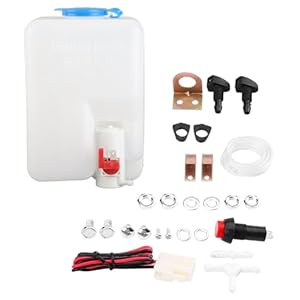
In the realm of smart vehicle electronics, AI serves as the silent conductor orchestrating a symphony of safety, performance, and efficiency. Imagine a world where your car anticipates your needs before you even realize them, where every turn is met with precision, and each journey is seamlessly tailored to your preferences. The role of AI in smart vehicles is not just about automation; it’s about creating a dynamic ecosystem that adapts and evolves with you at the helm.
Enhancing Driver Safety
By integrating AI technology, smart vehicles can significantly enhance driver safety by proactively alerting drivers to potential hazards. Through sensors and cameras, AI can detect obstacles, pedestrians, and other vehicles on the road, providing real-time alerts to help you avoid accidents. For example, AI-powered systems can warn you if you’re drifting out of your lane or if there’s a vehicle in your blind spot. These alerts not only keep you safe but also help prevent collisions and reduce the likelihood of injuries.
Moreover, AI can analyze your driving patterns and offer personalized suggestions to improve your safety on the road. It can remind you to take breaks on long journeys, recommend safer routes based on traffic conditions, and even assist with parking in tight spaces. By leveraging AI technology, smart vehicles empower you to make better decisions behind the wheel, ultimately creating a safer driving experience for everyone on the road.
Optimizing Performance
To enhance the overall driving experience, smart vehicles utilize AI technology to optimize performance efficiently. Through the integration of AI systems, your vehicle can adapt to your driving habits in real-time, adjusting settings such as acceleration, braking, and suspension to provide a smoother and more responsive ride.
AI algorithms analyze data from various sensors and sources, enabling your vehicle to make split-second decisions for optimal performance based on road conditions, traffic patterns, and your preferences.
AI plays a crucial role in enhancing your vehicle’s performance by continually learning and improving its capabilities. By leveraging machine learning algorithms, your smart vehicle can fine-tune its engine efficiency, aerodynamics, and other factors to deliver peak performance while maximizing fuel efficiency. Additionally, AI can assist in predictive maintenance, identifying potential issues before they escalate, ensuring your vehicle operates at its best.
Improving Efficiency
Utilizing advanced AI technology in smart vehicles enhances efficiency by intelligently managing energy consumption and optimizing performance in real-time. AI algorithms analyze driving patterns, traffic conditions, and road data to make real-time adjustments that improve fuel efficiency. By predicting traffic flow and suggesting optimal routes, AI can help reduce fuel consumption and emissions. Additionally, AI-enabled systems can optimize the performance of electric vehicles by efficiently managing battery usage and charging schedules.
Moreover, AI plays a crucial role in enhancing the efficiency of autonomous vehicles. By processing vast amounts of data from sensors and cameras, AI systems can make split-second decisions to improve safety and efficiency on the road. These systems can predict potential hazards, optimize speed, and adjust routes to ensure a smoother and more efficient driving experience.
Transforming the Automotive Industry
The automotive industry is undergoing a significant transformation due to advancements in AI technology. AI is revolutionizing the way vehicles are designed, manufactured, operated, and maintained. Through AI-powered systems, vehicles can now offer enhanced safety features, improved energy efficiency, and autonomous driving capabilities. These advancements are reshaping the automotive landscape, leading to smarter and more connected vehicles on the roads.
One of the key ways AI is transforming the automotive industry is through predictive maintenance. By analyzing data from sensors and monitoring the vehicle’s performance in real-time, AI can predict potential issues before they occur, allowing for proactive maintenance and reducing the risk of unexpected breakdowns. This predictive approach not only enhances vehicle reliability but also minimizes repair costs and downtime.
Moreover, AI is enabling car manufacturers to personalize the driving experience for customers. By leveraging AI algorithms, vehicles can adapt to individual preferences, providing customized settings for climate control, entertainment, and even driving style. This level of personalization enhances customer satisfaction and loyalty in a highly competitive market.
Automotive & Tools














